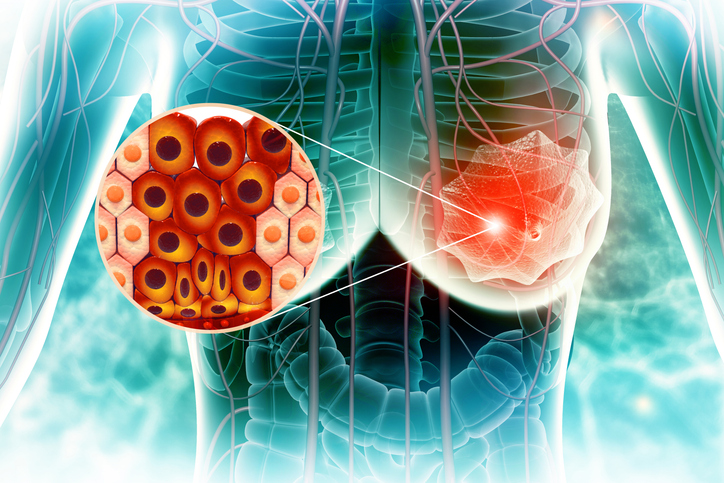
A recent retrospective cohort study published in NPJ Breast Cancer examined the prognostic implications of HER2-low expression compared with HER2-zero expression in patients with early-stage breast cancer, revealing largely similar overall outcomes but notable differences within specific patient subgroups.
Conducted by Chihwan David Cha, MD, and colleagues, the multi-institutional analysis evaluated 1,152 patients diagnosed with stage I to III breast cancer. Following rigorous propensity score matching (1:2 ratio), 445 patients with HER2-low status and 707 patients with HER2-zero status were included, achieving balanced clinicopathologic variables between groups.
At a median follow-up of 92.7 months, survival analysis showed no significant differences in overall survival (OS), recurrence-free survival (RFS), locoregional recurrence-free survival (LRRFS), or distant recurrence-free survival (DRFS) between HER2-low and HER2-zero groups. Specifically, 5-year OS was 95.4% for patients with HER2-low status and 97.6% for patients with HER2-zero status (P=0.293). Similarly, 5-year RFS rates were 96.6% and 95.0% for HER2-low and HER2-zero groups, respectively (P= 0.080).
Hazard ratios (HRs) from Cox regression analyses indicated that HER2-low status did not significantly influence OS (HR, 1.298; 95% CI, 0.798-2.112; P=0.294) or RFS (HR, 0.639; 95% CI, 0.386-1.059; P=0.082).
However, subgroup analysis among patients with lymph node metastasis (n=369) revealed improved RFS in patients in the HER2-low group compared with those in the HER2-zero group (P=0.033), although no significant differences were noted for OS, LRRFS, or DRFS within this subgroup.
These findings align with previous research suggesting prognostic differences based on lymph node involvement. The authors emphasized that “our study reported comparable survival outcomes between patients with HER2-low and HER2-zero breast cancer. In the subgroup with lymph node metastasis, the HER2-low status was associated with better survival outcomes than those with HER2-zero status.”
The authors acknowledged several limitations, including potential selection bias inherent in retrospective designs and the absence of centralized HER2 testing validation. However, the use of propensity score matching to balance critical prognostic variables such as age, tumor stage, nodal involvement, hormone receptor status, and treatment modalities added robustness to the findings.
The investigators concluded, “More studies are needed to validate our findings and examine the biological mechanism underlying these prognostic differences.”
Reference
Cha CD, Kim KE, Kim J, et al. Prognostic difference between early breast cancer patients with HER2 low and HER2 zero status. NPJ Breast Cancer. 2025;11:31. doi:10.1038/s41523-025-00737-8







 © 2025 Mashup Media, LLC, a Formedics Property. All Rights Reserved.
© 2025 Mashup Media, LLC, a Formedics Property. All Rights Reserved.